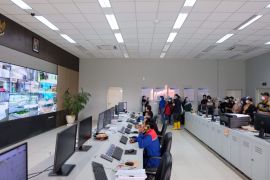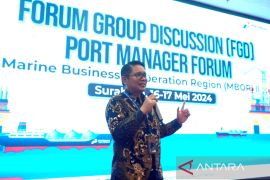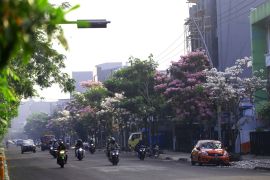Surabaya, E Java (Antara) - A team of Balinese provincial officials is conducting a comparative study in Surabaya on how the capital of East Java Province manages the environment. "I have frequently visited Surabaya in the past. The city used to be a slum and the weather very hot, but currently it is clean, beautiful, and green," Bali Deputy Governor I Made Sudikerta said here on Wednesday. Therefore, the Bali provincial government has sent a team to gather firsthand information from the Surabaya mayor on how to manage the environment, he noted. "We want to observe what measures the Surabaya city government had taken to manage the city like this," he said. While in Surabaya, the team led by Deputy Governor I Ketut Sudikerta had met Surabaya Mayor Tri Rismaharini accompanied by assistant II to the Surabaya city secretariat M. Taswin. At the one-hour meeting, the Balinese officials enquired about the success of the Surabaya city government in managing trash, creating city parks, and encouraging residents to take part in environmental management efforts. Rismaharini briefed her guests on the presence of city parks and urban farming. She said many areas in Surabaya are clean and green owing to public participation. Even some of the areas are now free from smoking and drug abuse, while others have managed to turn wastewater into useful water through communal wastewater treatment plants, she noted. "The city dwellers manage trash themselves by separating organic from inorganic waste. We also have many compost houses. Thus, even though Surabaya is densely populated, the quantity of trash transported to the landfill sites have continued to drop. The number of people suffering from environment-related diseases also has continued to decrease," she said. The city dwellers have also benefited from the presence of trash bank. "The inorganic waste that has been separated from the organic waste is weighed at the trash bank. The dwellers receive money in return for the inorganic waste," she added. (*) Reported by Abdul Hakim
Balinese Provincial Officials Conduct Comparative Study in Surabaya
Rabu, 17 September 2014 23:51 WIB






